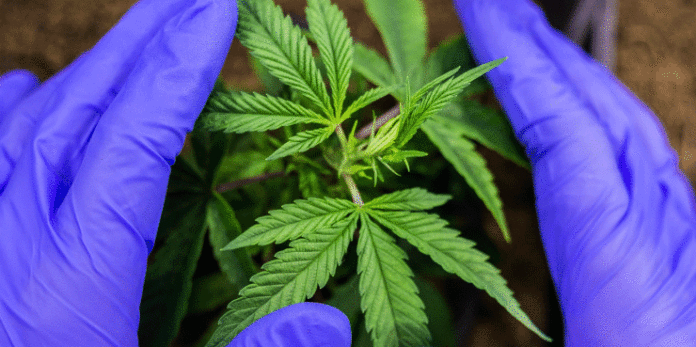Yesterday marked a historic day for the cannabis industry, as the U.S. Department of Health and Human Services (HHS) officially recommended that marijuana be reclassified from Schedule I to Schedule III under the Controlled Substances Act (CSA).
This letter of recommendation comes nearly a year after President Biden ordered the HHS and U.S. Attorney General to expeditiously review how marijuana is scheduled under federal law and to right the wrongs of the failed war on drugs. Since last October, the U.S. Food and Drug Administration (FDA) conducted a scientific review that led to the HHS recommendation. This is a critical step toward the end of cannabis prohibition, but there is still important work ahead.
“We are optimistic about the long overdue news that Health and Human Services is calling to recategorize cannabis to Schedule 3,” Boris Jordan, Executive Chairman, Curaleaf, says. “This represents a significant advancement on this issue politically, but it’s past time for our political leaders to listen to the voters on this issue, especially given that 92% of Americans are now in support of legalization in some form. 21 states offer adult use cannabis, and 39 states operate medical cannabis programs. Our industry is here to stay!”
The Recognition of Cannabis as a Legitimate Medicine
HHS’s determination confirms that the treatment of marijuana under the CSA has long been inappropriate, as substantial evidence supports marijuana’s medical use and safety. Rescheduling to Schedule III marks a significant change in the status quo and recognition of cannabis as a legitimate medicine, according to a statement from Vicente LLP. While placement in Schedule III still criminalizes commercial cannabis activity at the federal level, it is a critical step on the path to full descheduling and the end of prohibition.
Notably, in addition to easing some regulatory barriers to cannabis research, rescheduling cannabis to Schedule III would:
- Reduce criminal penalties for cannabis-related violations of the CSA
- Eliminate the 280E tax problem for cannabis businesses
- Relax various other regulatory burdens like quota requirements, security regulations, etc.
- Take a significant incremental step toward normalizing cannabis under federal law
- Support congressional efforts toward prohibition
“Shifting its classification acknowledges the evolving perceptions of cannabis and its potential medical benefits. Such a change could open doors for more comprehensive research and development of cannabis-based treatments,” Aaron Bloom, CEO of DocMJ, says. “It might also reduce some of the regulatory barriers that have limited the growth of this sector.”
However, Bloom notes that this shift doesn’t automatically mean a free-for-all. Stricter regulations under Schedule 3 would still apply, but the overall atmosphere seems to be one of gradual acceptance and recognition of the plant’s potential beyond its previous stigma. As the industry navigates these changes, responsible and ethical practices will be essential to ensure that the benefits are maximized while potential risks are mitigated.
Schedule 3 Could Foster Cannabis Business Growth
The potential shift of cannabis from Schedule 1 to Schedule 3 in the U.S. could bring intriguing possibilities for the cannabis industry, particularly in terms of debt dynamics. According to Brett Gelfand, CEO of CannaBIZ Collects, this change could imply a more stable and established market, attracting increased investments and fostering business growth.
“With a clearer legal standing, cannabis companies might find it easier to secure financing and manage their operations effectively. From a debt collection perspective, this rescheduling might lead to improved repayment capabilities within the industry, as companies operating under more regulated conditions are likely to have stronger financial positions. However, it’s crucial to remain cautious and adapt collection strategies accordingly, ensuring compliance with evolving regulations. As the landscape transforms, maintaining a balanced approach to credit and collection practices will be essential to support the sustainable development of the cannabis sector,” Gelfand says.
The final rescheduling decision rests with the U.S. Drug Enforcement Agency (DEA), and there is no specific timeline for this process, according to the statement. If the DEA determines rescheduling is appropriate, it will issue a proposed rule followed by a notice and comment period. There is a long road ahead, and many factors could contribute to a delay or obstacle in achieving rescheduling.










